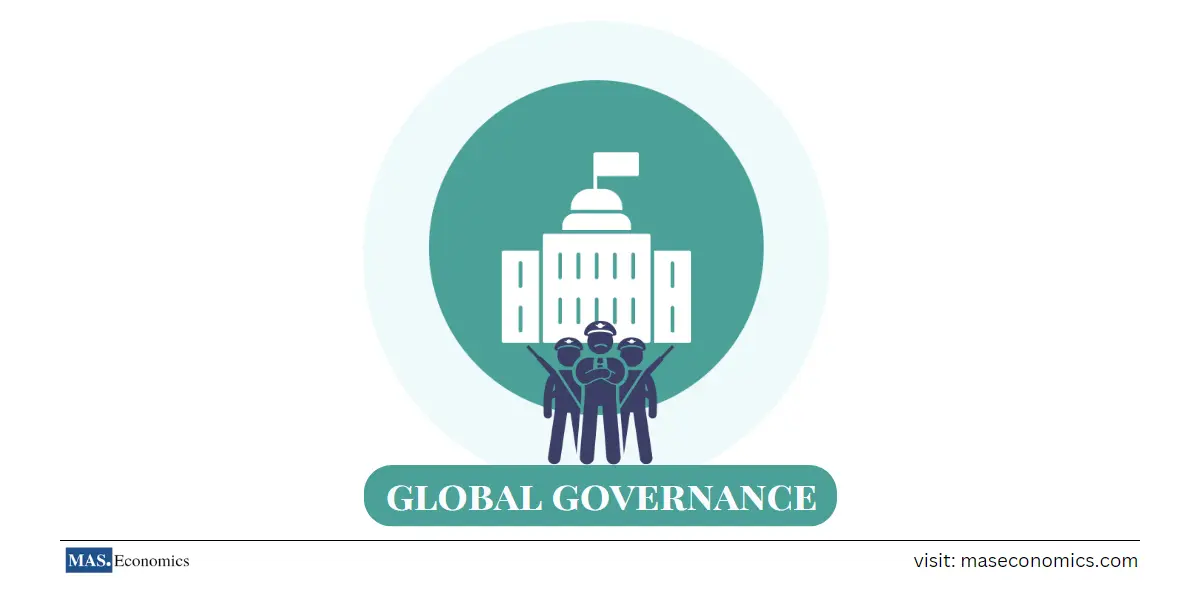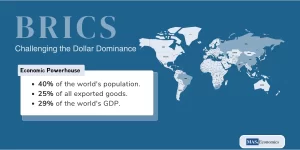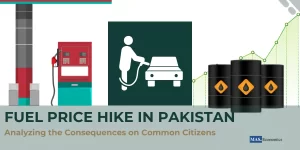Global governance refers to the approaches used to manage and regulate global issues by international actors. It covers various topics, from security and economic development to human rights and environmental protection. The importance of global governance rests in its ability to tackle transnational problems that cannot be solved through the actions of one nation alone. With the world becoming increasingly interconnected due to globalization, global governance has become essential for coordinating and governing the activities between states and other international entities.
In terms of international relations, global governance is crucial in forming rules and protocols that govern the relationships between states and other services. This helps create stability and predictability in the global system while fostering cooperation and finding solutions to conflicts.
Global governance challenges
Global governance faces numerous challenges in addressing a range of complex and interconnected global issues. Some examples of significant challenges include:
Managing economic globalization: Globalization has generated many advantages for economies worldwide and fostered issues like inequality, financial vulnerability, and reduced cultural diversity. Global governance must create strategies to manage the downsides of globalization while ensuring that its perks are fairly shared. This could include using trade policies to address economic imbalances and initiatives targeted at reducing the impacts of globalization on certain demographics, such as income disparity or safeguarding cultural distinctiveness. To build a more equitable and stable global economy, global governance must strive for a balance between globalization’s rewards and its consequences.
Addressing global environmental issues: Global governance must take swift action to address climate change, biodiversity loss, and pollution. This could involve creating a global framework of binding agreements and treaties that set targets for reducing emissions, preserving biodiversity, and taking specific actions at national and regional levels. Furthermore, incentives may motivate the private sector to become more environmentally friendly. Global governance must prioritize environmental protection to safeguard the planet for future generations.
Promoting human rights and justice: Global governance must strive to protect and promote human rights and fight inequality and injustice to create a fairer world. This may mean putting in place international laws and standards to secure human rights and fostering the rule of law and good governance at the national level. Additionally, structural inequalities can be addressed with policies designed to encourage gender equality and combat discrimination. Only by promoting human rights and justice can global governance ensure a peaceful and equitable world.
The role of technology in global governance: Technology provides new advantages and risks for global governance. Digital tools can reach more citizens while also introducing the possibility of misuses, such as data breaches or disinformation campaigns. Global governance actors must weigh technology’s potential benefits and dangers and find ways to leverage its positive potential best while mitigating potential downsides.
Regulating global governance
Creating an effective global governance system requires establishing a framework that outlines who has the authority to make decisions and how they should be enforced. There are several methods for regulating international actors, such as providing clear guidelines and enforcing accountability. Together, these approaches help ensure that rules and norms are adhered to for the betterment of global governance.
International law consists of rules and principles binding states and other international actors. It is a significant factor in global governance, setting standards for behavior and offering dispute resolution mechanisms. By providing a framework for how states and other actors interact, international law helps create stability and predictability in the global system.
Multilateral agreements and treaties are agreements between three or more countries that establish binding commitments on issues such as trade, the environment, or human rights. They play a crucial role in regulating global governance by setting out rules and norms that countries must follow. Multilateral agreements and treaties can help ensure that countries cooperate and work towards common goals, providing a mechanism for resolving disputes and enforcing compliance. They are an essential aspect of global governance as they provide a framework for international cooperation and can help to address global challenges that require collective action.
Enforcement of global governance regulations: Strict adherence to global governance regulations is essential for maintaining an international system that is both predictable and stable. Different actors, such as states, international organizations, and non-state entities, possess varying levels of power and influence that can determine their ability to shape outcomes. Ensuring effective enforcement of these regulations is paramount to addressing global issues, as it establishes a reliable framework for all parties to adhere to.
The role of international organizations in global governance
International organizations play an essential role in global governance. They provide a platform for nations to work together and resolve a broad range of topics, from environmental protection to economic development, human rights, and security. International organizations set criteria for behavior among states and promote collective action. Additionally, they facilitate negotiations between countries and serve as forums for dispute settlement. Furthermore, these organizations facilitate the exchange of ideas by providing platforms where representatives from different countries can come together and review one another’s experiences and practices. As a result, they promote a more robust and multilateral global governance system.
Major international organizations that contribute to global governance include the United Nations, World Bank, International Monetary Fund (IMF), and World Trade Organization (WTO):
The United Nations is dedicated to upholding international cooperation and tackling global issues. It has been assigned to preserve peace and security, safeguard human rights, improve economic and social development, and deal with environmental problems. Its specialized agencies and programs specialize in particular fields such as health, education, and nutrition.
The World Bank and IMF are central figures in global economic governance. The former presents countries with loans and financial aid for development initiatives, and the latter provides support to countries facing economic hardship. Both organizations carry much clout regarding international economic policies and have stirred up controversy due to their powerful reach and the terms of assistance.
The World Trade Organization is an international governing body that supervises international trade rules and encourages equitable commerce between its members. It acts as a platform for countries to negotiate trade treaties, settle disputes, and observe compliance with trade regulations. The WTO has had a significant impact on liberalizing global exchange and boosting economic prosperity.
Regional organizations are another influential force in global governance. Regional organizations provide a platform for countries in a region to come together and cooperate, addressing shared challenges and pursuing common goals. Their scope can range from economic integration to security cooperation. However, many regional organizations focus on issues such as economic development, human rights, democracy promotion, and the protection of natural resources.
These organizations allow countries to work together towards mutually beneficial outcomes that would not be possible if each country acted alone. Regional organizations can contribute to a more robust global governance system through their activities by promoting trust, consensus-building, and cooperation among their member states.
Regional organizations like the European Union and ASEAN facilitate collaboration between countries in a given region, with goals that range from economic development to security cooperation. These collaborations also contribute to global governance by providing a platform for regional states to address issues of global importance, such as climate change or international conflict.
Coordination in global governance
Global governance requires effective coordination between different actors to work together productively and reach common goals. All parties must know their rights and responsibilities to ensure successful outcomes. Coordination creates the framework necessary for a cohesive global system. Some examples of ways in which coordination occurs in global governance include:
Intergovernmental coordination: International organizations like the United Nations are instrumental in facilitating coordination between governments at an international level. This coordination is necessary to achieve common objectives, prevent conflicts, and create a stable global system. Through intergovernmental coordination, different countries are joined in their efforts to solve global issues and promote effective governance on a global scale.
Non-governmental organizations (NGOs) and civil society organizations (CSOs) can be powerful advocates in global governance, providing expertise, insight, and a platform for marginalized voices. They are vital in human rights, environmental protection, and development. Their involvement in global governance helps to ensure that the perspectives and needs of different stakeholders are taken into account and adds legitimacy to global governance efforts.
Private sector participation: The private sector can be a significant ally in global governance, particularly in economic development and environmental protection areas. They offer resources, expertise, and innovation to global governance efforts and are an essential source of financing. Their involvement helps ensure that global governance is practical and meets the needs of stakeholders. It is vital for the private sector to be held accountable and transparent when participating in global governance and that it does not conflict with broader objectives. Finding successful ways to engage the private sector and regulate them within global governance is a significant challenge.
Role of democracy and accountability in global governance: Global governance must be made accountable and responsive to citizens in order for it to be effective. This includes finding ways to make decision-making processes open and inclusive and allowing citizens to hold global governance actors liable for their actions. Democracy and accountability are paramount for ensuring global governance is in the public’s interest and meets the needs of different stakeholders. Global governance actors must be held responsible by citizens and remain transparent with their decisions. This can help foster trust among the public toward global governance and reinforce its legitimacy and success.
Conclusion
Global governance is crucial in setting the standards and principles that shape international relations and tackling global issues. Different actors like governments, international institutions, NGOs, civil society organizations, and the private sector can be coordinated to make global governance effective. It is vital to ensure accountability and responsiveness to citizens to succeed. New challenges bring opportunities to innovate global governance to address global problems and promote a peaceful and prosperous world. Technology, economic globalization, environmental protection, human rights, and justice should all be considered when developing global governance systems. By adequately managing different actors’ activities, global governance can tackle global issues and achieve a just and secure environment for everyone.




